Rivian says other automakers 'knocking on door' about tech from VW joint venture
By REUTERS | 24 January 2025
SAN FRANCISCO: A joint venture between US electric pickup and SUV maker Rivian and Volkswagen is in talks with other automakers about supplying their software and electrical architecture, a senior Rivian executive said on Thursday.
The German automaker agreed in November to invest US$5.8 billion (RM25.4bil) in the joint venture, which will integrate advanced electrical infrastructure and Rivian's software technology for both companies' future electric vehicles.
While a joint venture will give Rivian higher volumes to negotiate better supplier deals and reduce costs, seen as critical amid a slowdown in EV demand, Volkswagen and potentially other traditional automakers will get quick and easy access to technology and software they have struggled to build for years.
"I'd say that many other OEMs are knocking on our door," Rivian chief software officer Wassym Bensaid said in an interview, referring to Original Equipment Manufacturers, a phrase used to describe vehicle makers.
Bensaid, who is also co-CEO of the joint venture, declined to provide names of the interested automakers and details on what stage the talks were at.
Rivian's architecture requires fewer electronic control units and significantly less wiring, reducing vehicle weight and simplifying manufacturing.
The technology is core to building cars with software that could be updated over the air like a smartphone - what the industry calls "software-defined vehicles", an area where established automakers are still running behind.
Boeing warned Thursday that it expects a fourth-quarter loss of about US$4 billion (RM17.6bil).
"There is demand," said Bensaid, adding that the priority until 2027 was to roll out the R2, Rivian's smaller, less-expensive SUV and to integrate the technology in other Volkswagen brands.
"Obviously other OEMs are talking to us and we're trying to figure out how to support that in the future."
"Any other OEM who wants to make a leap from a technology standpoint, the joint venture today becomes one of the key partners with whom they can make that collaboration," he said.
The venture is likely to become the platform of choice in the Western world apart from Tesla, Canaccord Genuity analysts said in a note.
The joint venture also helps alleviate "a significant chunk of the capital concern" for Rivian, the analysts said.
In a related development, Rivian CEO RJ Scaringe also said on Thursday that it plans to launch its advanced hands-free driver assistance systems in 2025 and its "eyes-off" systems in 2026.
An advanced driver assistance system that enables drivers to take their hands off the wheel and eyes off the road will add an "enormous amount of value to customers," Scaringe said.
Automakers have been competing in recent years to introduce more autonomous driving features such as lane-keep assist and adaptive cruise control into their vehicles.
Advancing driver assistance technology will give buyers their "time back," Scaringe said, allowing them to get on their phones, read books or send emails while at the wheel.
Developing such capabilities in systems is "something we're hyper focused on," Scaringe said.
Rivian's Gen 2 vehicles are currently equipped with the "Rivian Autonomy Platform," which assists drivers but still requires their continuous attention and control of the vehicle, similar to features offered by some other automakers.
Scaringe's announcement comes amid heightened scrutiny of advanced driver assistance systems, as leading EV makers such as Tesla pivot towards self-driving technology and robotaxis.
The US National Highway Traffic Safety Administration earlier this month opened a probe into 2.6 million Tesla vehicles following reports of accidents involving a feature that allows users to remotely operate their cars.
The company also does not see substantial risk to its loan for a Georgia plant from US President Donald Trump's executive orders aimed at the EV industry.
Earlier in January, Rivian and the US Department of Energy finalised a loan agreement for up to US$6.6 billion (RM29bil) to help build the EV maker's production facility in Georgia.
Trump on Monday revoked a 2021 executive order issued by his predecessor Joe Biden, which aimed to ensure that, by 2030, half of all new vehicles sold in the US would be electric.
In addition, Trump also called for ending a waiver that allows states to adopt zero-emission vehicle rules by 2035 and said his administration would consider ending EV tax credits.
Trump's threat to impose duties of 25% on goods from Mexico and Canada has also cast a shadow over automakers and their suppliers.
Tags
Autos Rivian
Reviews
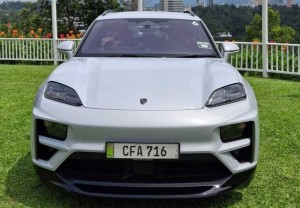
Porsche Macan EV: Re-energised exhilaration
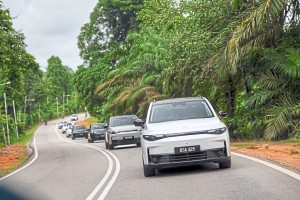
All-electric Leapmotor C10 SUV ticks all the right boxes
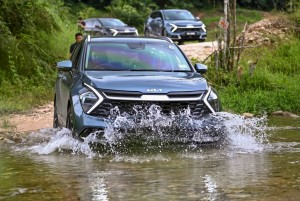
New Kia Sportage: Versatile and stylish

6.6
Triumph Scrambler 1200 X: A good balancing act
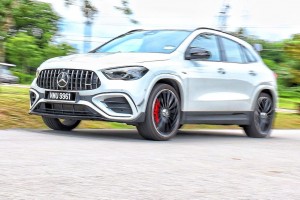
8.3
Mercedes-AMG GLA 45 S 4Matic+: Poking the pocket rocket
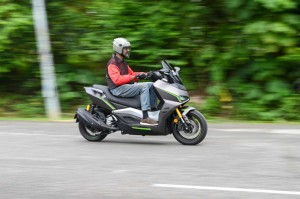
8.0
Moda Sporter-S 250: A new player in town
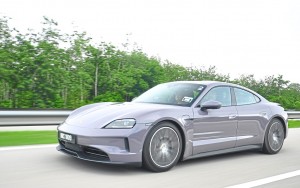
Porsche Taycan E-xperience drive: Kuala Lumpur - Kuantan

Mercedes-Benz E 350 e PHEV: Refined elegance, timeless prest...
Videos

StarCarSifu Editors' Choice Awards 2024: Top winners

The Snowball – Lamborghini’s Heartwarming Christmas Story of...

EVOGO battery swapping solution showcased at IAA Mobility 20...
